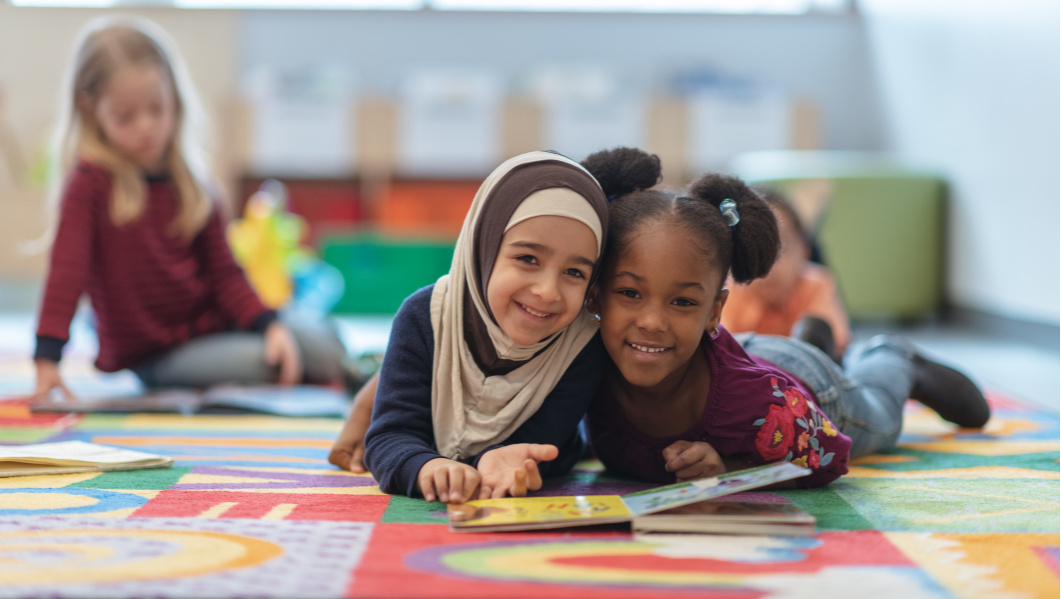How to Talk to Your Kids About Refugees

Have you wondered how to talk to your kids about refugees? Has the subject come up as you hear reports of thousands of displaced Ukrainian people fleeing their country in this time of war?
Political buzzwords and polarizing commentary on global events are just normal now. And if we’re honest, most of us would confess we do not invest the time to find out (or we simply try to avoid) what is actually going on in our world. We know the world is groaning because we all feel it—even our children; but do we fully understand the significance behind these current groans? Investing the time it takes to better understand global affairs can make a big difference as we attempt to train up our children’s hearts and minds. That is why it is so important that we, as Christian parents, intentionally wrestle with the current refugee crisis across our planet.
My family and I are missionaries serving in Germany, working primarily with refugees and displaced people from the Middle East, which gives us an up-close perspective of precious people struggling to start over because of war in their homelands. This week, because of the recent fighting in Ukraine, we’ve seen over 100 Ukrainian orphans arrive in our region with more to follow, I’m sure. We have the privilege of holding many broken people in our arms who have fled unspeakable horrors, and we have the joy of seeing the power of Jesus Christ begin to transform their hearts and heal their wounds.
So with this much at stake for our brothers and sisters across the earth, how do we begin to help our own children and family understand? How can we be part of the solution? Sometimes, it is as simple as taking one step or starting one conversation.
How to Talk to Your Kids About Refugees
Don’t be afraid.
When we tell our American friends and our supporters about our work with Middle Eastern refugees, the most common first response is, “Are you scared?” Americans have been conditioned to respond with fear when encountering people from Afghanistan, Iraq, Iran, and neighboring countries—and to be honest, that was my feeling until about seven years ago, too. But this blanket-fear of people from countries with different cultures and religions has paralyzed us from reaching out with the love of Jesus to those who so desperately need it. Right now, there are plenty of reasons for families to flee from the Middle East and most currently from Ukraine in eastern-most Europe, and it is vital to understand that we each have some level of ability to help them. The first step in talking with your kids about refugees is to surrender your fear to God and ask Him to fill you with His love for people—all people.
2 Timothy 1:7 (NKJV)
God has not given us a spirit of fear, but of power and of love, and of a sound mind.
As God’s children, it is not part of our transformed, new nature to operate out of fear! Instead, He implanted in us a powerful, loving, spirit coupled with a sharp, sound mind—so that we can let His kingdom reign in us and through us.
Explain what “refugee” means.
A refugee is a person who had to run away from their home country because their life was in danger—usually from war, but also other circumstances that made them unsafe where they grew up. Because they were no longer safe if they stayed in their home, they chose to leave everything behind and run to a safer place. A refugee asks a new, safer country to take them in and give them permission to live there.
All through the Bible, we can see examples of running to God as our safe place. God understands refugees. He is our Refuge. He gives us the right to run to and be safe in Him.
Psalm 46:1 (NKJV)
God is our refuge and strength, a very present help in trouble.
Psalm 9:9 (NKJV)
The Lord will also be a refuge for the oppressed, a refuge in times of trouble.
Psalm 91:2 (NKJV)
I will say of the Lord, ‘He is my refuge and my fortress; my God, in Him I will trust.’
Help your children empathize.
Talk about all the ways we are just the same as a person who has the title of refugee. We all have parents and families, we all like to live in a comfortable place with food to eat and electricity available for light and heat, we all need clothing, we all need a community, and we all need love. We all get hurt, we all feel loss and sadness, and we all need help. Depending on the age of your children, you could even lead them in imagining what it might be like if it were your family going through such hardships, and how they might feel or what they might do in that situation.
Get involved.
The best way to help your children learn and grow on this topic is to get involved. It is easy to dismiss the subject and relegate it to being someone else’s responsibility, but don’t take the easy road. Take the opportunity to model empathy, love, and action in front of your children by reaching out and making a difference.
1. Find out where there are refugees or other displaced people in your community and volunteer to help! Hang out in places where people congregate who don’t look like you. Make friends with families from different backgrounds and religions—meet for coffee, invite them for a meal. Pour out the love of Jesus on them with no strings attached.
2. Teach your children to pray for refugees by making it a regular thing you do together. Print out maps and graphics from relief agencies so you can see the countries where people are fleeing and where they have ended up. Pray for God to help them and protect them, and to get them to a safe place where they can start a new life. Pray for healing in their hearts. Pray for families to be reunited. Pray for the eyes of their hearts to be opened to the good news of Jesus. Pray for peace and an end to war. Pray for God’s Kingdom to come and His will to be done—here on earth as it is in heaven.
3. Donate to relief organizations and missions organizations that are on the front lines in the refugee crises across the globe. There are probably groups, churches, and other non-profit agencies in your town that are currently helping refugee families, so start there. And then look a little broader and ask the Lord to lead you in financially supporting relief efforts. Involve your family by doing creative things to raise funds—a neighborhood yard sale, raking leaves, washing cars—the sky’s the limit! Our family knows first-hand how important your donations are in helping refugees and what an impact your donations make in reaching people with Jesus’ love.
. . . . . . . . .
Your willingness to take on difficult subjects with your children is so important. You have these short years to help shape their worldview, and it really matters that you take every opportunity to point them to God’s heart for people and for our world.
*It is helpful to see reports from sources like UNHCR, World Relief, and Open Doors to better grasp the current refugee situation. UNHCR reports that there are over 70 million displaced people on the earth right now—the highest number since World War II.

Crista, along with her husband Tim and two children, has lived in Germany since 2014. They serve the refugee community through Refuge Berlin as missionaries and pastors, leading a house church that meets in their apartment. Bringing people to faith in Jesus, as well as raising a family in a cross-cultural and multi-lingual environment has given Crista a unique perspective and a platform to encourage other Jesus followers as they grow in their own faith.